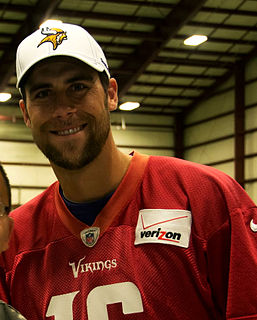A Quote by Neil Gaiman
I was the kind of kid whose parents would drop him off at the local town library on their way to work, and I'd go and work my way through the children's area.
Related Quotes
As a kid, I would get my parents to drop me off at my local library on their way to work during the summer holidays, and I would walk home at night. For several years, I read the children's library until I finished the children's library. Then I moved into the adult library and slowly worked my way through them.
As a kid I would get my parents to drop me off at my local library on their way to work during the summer holidays and I would walk home at night. For several years I read the children's library until I finished the children's library. Then I moved into the adult library and slowly worked my way through them.
I'm not one of those who say this is the way. I'm not that opinionated. I can only say this is my way. Even the $1,000 scholarship that my son could have gotten from the state of Illinois to go to college, we didn't want. I'd rather get out and work and have my children know that their money comes from their parents and we have to work for it.
Westerners often laud their children as 'talented' or 'gifted', while Asian parents highlight the importance of hard work. And in fact, research performed by Stanford psychologist Carol Dweck has found that the way parents offer approval affects the way children perform, even the way they feel about themselves.
When you were a kid, it [work in IBM] seemed like an awesome job. I'd get to go to work and have a briefcase. I loved how Dad wore a tie and got a car. I didn't know if all those things came together. I'd see my dad go off to work and we'd wait for him to come home, and we'd all be excited to see him.
A friend of mine said to me a year ago, "You're so lucky, Nancy, because Ronnie left you the library," She said, "You have that to work on, and to go to, and, in a sense, to be with him." I had never thought of it like that, but it's true. I go to the library or work for the library all the time, because it's Ronnie. I'm working for Ronnie.
Sometimes it's easier to make decisions when you know that you've tried things that are so wrong, you know, "OK, I don't go that way with it. I don't go this way with it." The way I work, I kind of have to go down all those wrong paths to know that the one I'm doing really is the one that is going to work.
I know people who have literally quit their jobs to spend more time with their children, and I go, 'Wow,' my dad used to go to work at 7 o'clock in the morning and he'd come back at 7:30 and we'd kind of see him walk in and then he'd go upstairs and suddenly he'd be in a T-shirt and grumpy. There wasn't much in the way of conversation that went on.
Schoolchildren all over America are told to write to authors-often to authors whom they have never before heard of, whose work they are to young to understand in the least, and often in letters which are almost illiterate. If children are to be taught to respect the work of American poets I think some better way might be found to do so- some way which would not make such an inconsiderate demand on the author's time.
The only thing I can hope the viewer will get from the work is something about the structure of the work. It would be asking too much, I think, for them to get my exact intention. But if - through the construct of language, the way things are juxtaposed - there is some sort of disruption of the way you would normally go about reaching photographic images... if that is happening, that's fine.
Education was a given, only because of the way I was raised. Truth be told, I thought, at 15 years old, I should go and get a record deal and drop out of school, and my parents would have had none of that. I'm grateful now that my parents were pushing me in that way, because I wasn't mature enough on so many levels to do that.

































